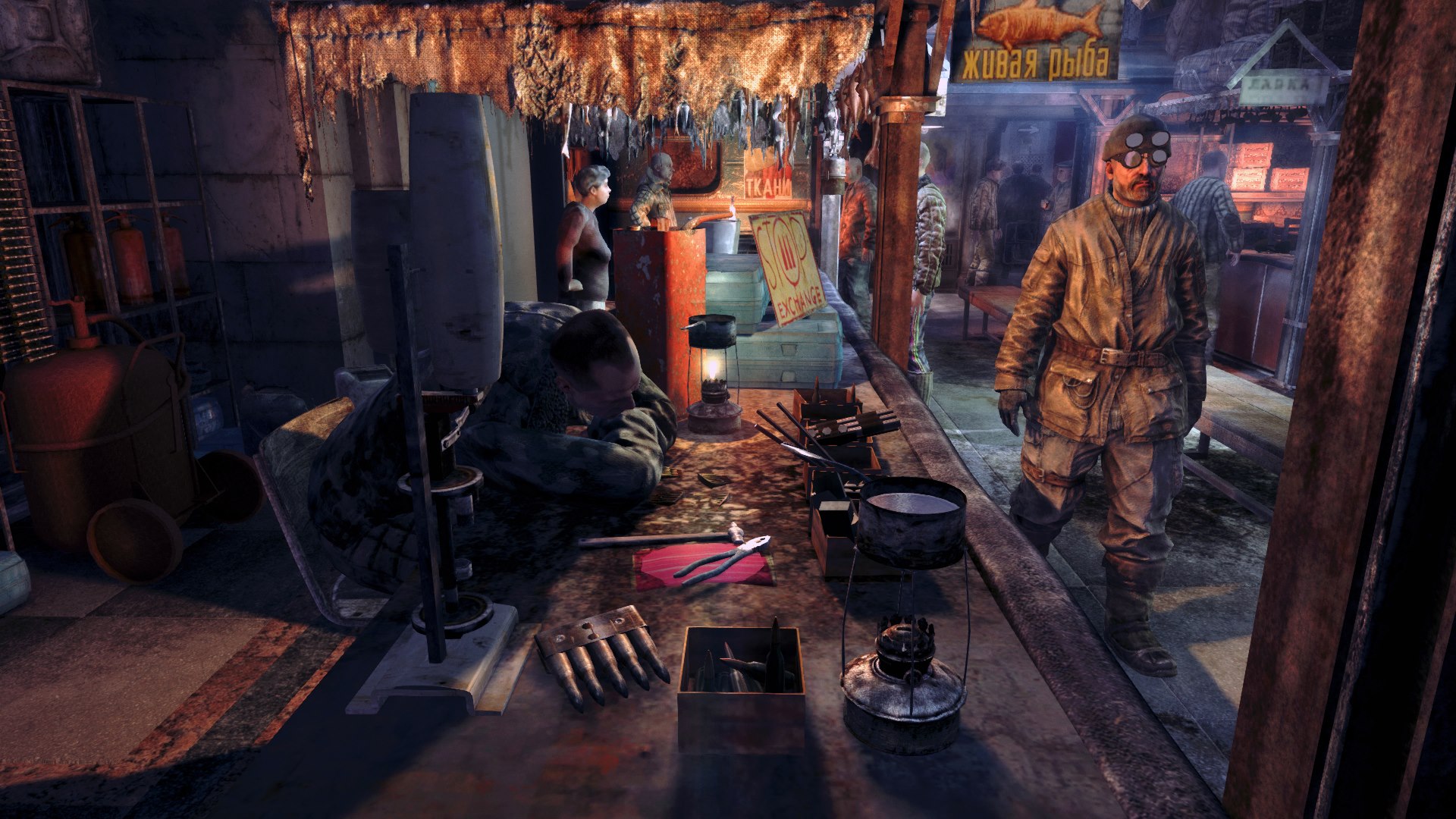

Sneaking isn't mandatory unless you crank up the difficulty it simply feels appropriate and hinged on the game's tenets of resource conservation and life preservation. To wit, a large shootout against an invading metro faction is dwarfed by any battle in Call of Duty, but feels ten times more important in your journey.Ī non-lethal approach is feasible too, and it comes with one of the most satisfying knockout punches in years. The infrequency of combat empowers that activity in the same way, with sporadic bursts of violence giving Last Light both a clear rhythm and purpose. Metro: Last Light is smartly conservative: for as much as it revolves around picking everything clean of ammunition and currency (which are sometimes the same thing), it's remarkable how much less rifling there is compared to a BioShock.

And you know the visor is a big deal when there's a button for it, dedicated just to wiping off the dirt and blood that accumulates.

Air filters for your gas mask must be replenished when above ground, with a countdown on your watch reminding you how little time is left before the gasps and gulps set in. The flashlight, which is necessary to ward off some of the scarier things scurrying out of Moscow's corpse, needs to be regularly charged with a small handheld generator. Last Light, more than most games in which you are primarily built to shoot, manufactures tension through an ever-bleak environment and your fragile existence within it. To explore is to linger, listen and look and that's fine.%Gallery-188180%While you assume the role of Artyom, a member of a hardened peace-keeping group that settles matters in the metro, it's impossible to forget the dangers lurking above and outside. The town layouts are noticeably linear, in part because there isn't much room for subterranean sprawl, and because the game spends all its money on the critical path. There are glimmers of recuperating life in these bastions, most of all in Metro's stunning sewer-bound equivalent of Venice. Last Light, much like predecessor Metro 2033, is a feat of obsessive, paradoxical world-building – you believe this as a place that has been demolished, poisoned and forced to retreat into claustrophobic hovels. It has all the awkwardness and earnestness of a production that only needs to be less bleak than its surroundings.

If you opt out of the game's scavenging and shooting for a few moments, there's an entire show to take in. You can listen to the instrument's musical wheezing as part of a show put on in a dilapidated theater, one of several populated hubs you'll visit in your trek through the tunnels of Moscow. If not its purpose, I have to respect the accordion's presence in Metro: Last Light. But the worst thing, the cruelest twist, the darkest dick move of the apocalypse, is that millions die and the accordion still makes it. Humans that remain must huddle underfoot, eking out lives in Moscow's underground railways. The world is irradiated rubble, blanketed in noxious fumes and trampled by gnarled monstrosities. There is so much suffocating despair in Metro: Last Light.


 0 kommentar(er)
0 kommentar(er)
